A Boy Ran Into the Street in Tears, Saying, “He Hu:rt My Grandma!” — Seconds Later, a Group of Bikers Stopped in Front of His House, and What They Did Left the Whole Neighborhood Speechless
The Evening on Cedar Lane
The late sun slid down over Cedar Lane in Willow Bend, Oregon, washing the clapboard houses in a quiet gold. Lawns lay neat and trimmed, sprinklers ticked, a porch swing creaked in an easy rhythm, and somewhere a radio hummed along to an old country song. It looked like any other soft evening in a small American town—until a thin voice broke the stillness and turned the light sharp.
A boy stood on the white-painted steps of a small house, barefoot, knees scuffed, hair a little wild like he’d run through wind. He clutched a threadbare stuffed bear to his chest the way a swimmer clings to a life ring. “He hurt my grandma,” he said, and the words were small, but they landed with the weight of a stone dropped in a pond.
His name was Noah. He was six. He’d rushed out the front door after the shove he didn’t understand, the commotion no child should have to sort, his bear tucked tight beneath his chin. Behind him, his grandmother—Grace—sat on the steps in a faded blue dress, her silver hair pulled back in a clip, one hand hovering over her cheek as if her fingers could unmake what had already been done. She tried to smile for Noah. It wobbled. Her other hand trembled as it settled on her knee.
In the doorway lingered a man with a red face and a half-empty bottle. His name was Cal. He wore anger like a coat, and he seemed to feel nothing else very strongly, least of all the kind of shame that might have softened him.
Noah looked from his grandmother to the street and back again. Who could help? He was learning too early that sometimes grown-ups failed other grown-ups. But he’d also learned that saying truth out loud was like turning on a porch light—sometimes it made what hid in the dark step back.
From the distance came a sound like distant thunder. A low, rolling growl, then six, seven, eight engines rounding the curve by the hardware store, moving in easy formation. Chrome flashed in the last light. The bikes pulled up at the curb in front of Grace’s place and fell quiet, one by one, until the whole street seemed to lean forward and listen.
When the Engines Went Quiet
The riders weren’t from this block. They wore black leather vests softened by years of weather. Ink curled from their sleeves. Their boots carried dust from roads Cedar Lane didn’t know. At the front was a man a head taller than most, beard salted with gray, eyes steady and clear. He swung off his bike with the unhurried grace of someone who’d seen a lot and who no longer felt the need to prove it. The patch on his vest read MAPLE RIDGE RIDERS in a looping stitch, the kind of name that turned some neighbors cautious at first glance.
He looked at the boy and crouched to meet him eye to eye. His voice didn’t boom; it warmed. “Hey, buddy. I’m Grant,” he said. “What’s happening here?”
Noah’s hand shook as he pointed—toward the porch, toward Grace’s cheek, toward the man in the doorway with the bottle gripped tight. Grant’s eyes followed the small trembling hand. Something old moved behind his gaze—memory, maybe, or the ache of a door he once closed against a noise he couldn’t stop. He rose slowly. Behind him, his crew formed up the way people do when they’ve decided who they are and what they stand for.
Windows up and down the street shifted. Curtains twitched. Screen doors eased open and stuck. Neighbors pretending not to look began to look, and then couldn’t pull their attention away.
Cal tried to square himself in the doorway. His voice came out thin, wobbling on the edge. “This is none of your business.”
Grant planted his boots at the bottom step. He didn’t raise his voice. “When a six-year-old says his grandma got hurt,” he said, “it’s everybody’s business.” The words landed quiet but firm, like a hand on a shoulder that says, Enough.
The Weight of a Presence
Cal took a step back. The bottle bobbled in his grip. The excuse that was lining up behind his teeth stumbled and didn’t make it out. Grant didn’t move closer. He didn’t need to. He simply stood there the way a doorframe stands—solid, square, making it clear where inside ends and outside begins.
No one had to shove Cal. Sometimes people leave because they understand what they’ve done, and sometimes because they see eyes that won’t look away. He turned, grabbed a set of keys from a tray, and walked past the hall mirror without meeting his own reflection. The screen door groaned. He crossed the yard, got into his truck, and started the engine. The lights washed over Noah and Grace; then the truck rolled down Cedar Lane, growing small and smaller until it took the bend and was gone.
Silence arrived like a big breath finally exhaled. It wasn’t peaceful yet, but it was clearer.
What Help Looks Like
Nobody moved fast. That mattered. One of the riders—Jesse, whose hands were rough from wrench work and winters on the road—offered a bottle of water to Grace. Another—Manny, quiet, careful—knelt on the step and opened a small first-aid kit that looked like it had been packed for both highways and kitchens. He touched the cleansing pad to Grace’s cheek as if he were steadying a newborn’s head.
Neighbors saw it. They’d seen the leather vests and decided a few things, the way people do. But here were those same hands doing careful work, no questions, no blame. You could feel the story inside Cedar Lane shift a little on its foundation.
From the house next door, Mrs. Larkin—who had practiced a decade of friendly distance from anyone with a loud engine—came down her walkway with a folded blanket. Her voice shook as she held it out. “For your lap,” she said to Grace. “Evenings get chilly.” Grace said “Thank you” with a mixture of surprise and relief that made Mrs. Larkin blink fast and nod.
Grant sat on the step near Noah, not quite touching him, just sharing the space. “You okay?” he asked softly.
Noah took a breath that shivered in the middle. “Not really,” he said in a voice too old for six. He gripped his bear and blinked hard. “But my grandma will be.”
Grant nodded as if Noah had answered a question from a manual he trusted. “That’s a strong thing to say,” he murmured. A tear found Grant’s cheek in the glow of the fading light. He didn’t wipe it away, and he didn’t explain it.
The Lights in the Driveway
Sirens didn’t wail; they approached steady and professional, then cut at the curb. The paramedics stepped into the quiet with the kind of practiced calm that tells a room, We’ve got you. They asked simple questions and listened for simple answers. Grace answered with small words and head tilts, and Noah squeezed the bear’s neck until his knuckles went pale.
Before they loaded Grace into the ambulance, she turned her head toward Grant. “You didn’t have to stop,” she said.
Grant shook his head. “Yes, ma’am,” he said, and there was no bravado in the words—only a steady truth. “We did.” He put his hand on the railing and looked at Noah. “Nobody should be left alone with fear. Not a kid. Not anyone.”
Noah pressed his face into Grant’s leg in a quick, fierce hug, the kind children give when they trust what comes next.
The back doors closed. The ambulance pulled away, a modest set of red lights fading into the soft evening. Grant and his riders didn’t follow. They stayed until the sound was gone and then a little longer, the way people do when they want their presence to linger as proof: someone showed up.
The Street Learns a New Story
When the bikes started again, the sound felt different—less like thunder, more like a promise that still had more miles to travel. The riders turned out of Cedar Lane and headed toward the ridge, taillights blinking in an even rhythm. For a moment, every open window on the block reflected the same glow.
All that night and into the next morning, Cedar Lane talked. Some voices were sheepish—people who had told themselves for years that looking away was the same as staying out of trouble. Others carried gratitude like a tune they couldn’t stop humming. In kitchens and at curbside trash bins, the story got told and retold: leather vests, careful hands, a boy who spoke up, a man who didn’t shout back but stood his ground.
It didn’t make anyone into saints. It just rearranged a few truths: that help sometimes looks like people you weren’t expecting, that steadiness can arrive on two wheels and a low idle, that kindness is more about what you do than what you wear.
The Check-In
Three days later, an afternoon breeze sent maple leaves cartwheeling along the sidewalk. A familiar rumble rolled down Cedar Lane and cut near Grace’s gate. Grant took off his helmet and hooked it on his handlebar. He didn’t walk up right away. He looked at the house as if asking permission with his eyes.
Grace waved from the porch. The faint discoloration along her cheek had softened. A knitted throw lay over her lap, the one Mrs. Larkin had offered. Noah sat beside her, bear on his knee, a crayon tucked behind one ear.
“Afternoon,” Grant said.
“Afternoon,” Grace answered.
Noah lifted his chin. “I’m learning to tie my shoes tight,” he announced. “Like yours.”
Grant glanced at his laces and smiled. “Double knots don’t come loose easy,” he said. “Good choice.”
They talked about little things—about the bakery two blocks over, about the new chalk art hopscotch in front of the corner market, about how the nights would get colder now and whether the wood for the stove was split yet. It didn’t take long. It didn’t need to.
When Grant stood to go, Grace reached for his sleeve. “Thank you,” she said, and it landed like a deeper thing—the kind of thank you that recognizes you didn’t just remove a problem; you stayed long enough to steady the room it left behind.
Grant tipped two fingers from his forehead in a quiet salute and headed back to the bike.
A House Becomes a Table
In the weeks that followed, the house that had held an evening of fear rearranged itself. Grace began hosting Saturday soup for anyone who wanted to share a meal without counting dollars. What started as a pot of chicken noodle grew into two pots, then three; a neighbor brought bread, another chopped vegetables on a secondhand board; kids washed bowls under the watch of someone’s aunt who liked a tidy sink.
No one asked for stories, though stories drifted in anyway. They rose with the steam and settled like warmth in the shoulders. Grace’s hands steadied as she ladled—some of that was time, some of it was people coming close with the exact kind of closeness that heals.
Cedar Lane learned to recognize the difference between quiet that hides trouble and quiet that means peace. On evening walks, neighbors began pausing instead of hurrying past. A hello became a conversation. A conversation became knowing the names of someone’s grandkids. Knowing names became knowing when to knock.
The Maple Ridge Riders came through from time to time. They never stayed long. They never made speeches. Sometimes they brought a sack of potatoes. Sometimes a package of napkins. Once, a stack of comic books tucked into a grocery bag that found its way into Noah’s backpack without fanfare.
What Cal Took and What He Left
Cal didn’t return. He’d carried away a toolbox of restless feelings—shame, anger, the weight of choices that get heavier the longer you hold them—and he left behind a silence with space inside it. You can build a lot in a space like that if the first thing you set down is care.
No one said his name much. On Cedar Lane, they learned that the most important part of a story like his is not whether he finds his way; it’s that the ones he left frightened learn to live without that fear pressing at the door. Grant didn’t check up on Cal. He checked on Grace and Noah.
The Ridge and the Road
Grant’s crew kept riding the ridge roads—work, family, miles, the whole braid of a life that won’t be contained in a single label. You could find their tracks in the morning dew along the highway shoulder, or you might not notice them at all because that’s how they preferred it. They weren’t looking to be the point of anyone’s story. They just wanted to make sure that when a kid said a thing that hurt to say, it wouldn’t fall into an empty street.
On nights when the shop was quiet and the tools lay lined up in a neat row, Grant sometimes leaned his shoulder against the doorjamb and let memory move through him. He saw a small boy on a flight of steps with a bear in his hands. He saw a grandmother clutching the edge of a blanket and finding her way back to steady breath. He thought about how some of the work in this world is loud and some of it is just showing up and not looking away.
The Lesson Cedar Lane Kept
The town had its calendar of events: the harvest fair, the library book sale, the autumn 5K that wound down along the creek. But if you asked folks on Cedar Lane about the day that taught them something lasting, they pointed to the evening when engines went quiet and a certain kind of courage made a stand without a shout.
There’s a way kids retell a thing until it turns into a vow. “If you hear someone say they need help,” you could catch them saying on the basketball court, “you stop.” They made it a kind of call-and-response on the swings: “If somebody says the truth,” one kid called. “We listen,” the others answered.
Noah grew taller. He learned to lace his sneakers and tuck the ends in so they wouldn’t flap when he ran. He learned that you can be brave without yelling, that you can be kind without apologizing for it, that you don’t let appearances do your thinking. At the park, when somebody asked why he had spoken up that day, he said, “My grandma taught me to tell the truth.” Then he added, “And those riders came. They just helped.”
Years Later, a Fence to Fix
A few years down the line, the cedar fence between Grace’s place and the alley began to lean. On a bright Saturday, Noah showed up with a hammer too big for his hand and a tool belt that slid down his hips. Grant pulled his truck up with a stack of boards in the back and a quiet laugh at the ready.
They measured. They set posts straight with a long level bubble that Noah checked three times just to be sure. They tamped soil. They shared a sandwich at noon, knees dusty, sun warm along their forearms. Grace watched from a lawn chair with a glass of iced tea, her smile tucked in at one corner the way a note is tucked into a book you read more than once.
“You still tying double knots?” Grant asked once they were done.
“Triple,” Noah said, and lifted a foot to show the precise bow. “Some things are worth overdoing.”
Grant tapped the board with the hammer head, listening to the new fence sound. “Solid,” he said. You could hear he meant more than lumber.
The Way the Story Travels
Stories don’t always grow in a straight line. They braid through Thanksgiving tables, ride in the passenger seat to soccer practice, wait their turn in barbershop chairs. The Cedar Lane story traveled that way—patched into other tales as an example, as a nudge, as a reminder. When someone began to pass along a rumor about the Riders, someone else would say, “I know what they did for our neighbor.” When a kid hesitated on the edge of saying something that mattered, he’d hear, “Go on. We listen here.”
Not every day turned tidy. Life kept being life. People made mistakes, cleaned them up, made new ones, and tried again. But the lane had a different habit now: if you saw a porch light flick on in the middle of a quiet afternoon, you didn’t assume it was nothing. You checked.
Engines, Soft as a Lullaby
Sometimes—on evenings when the sun set the same soft way it had that first day—Grant’s crew would roll down Cedar Lane at low speed on their route back to the ridge. No one waved them down. No one had to. The sound was soft enough not to wake babies, steady enough to tell the block that if anyone needed someone to stand and be counted, it wouldn’t take long to find them.
They didn’t leave cards or pamphlets. They left a pattern: show up, listen, steady the ground beneath somebody’s feet, and then move on so they can stand there themselves.
What Stayed
In the end, what the evening left behind wasn’t a headline or a plaque. It was the way Grace’s kitchen filled on Saturdays. It was the small scuff on the step where a boy had planted his foot and told the truth. It was the old bear, re-stitched more than once now, sitting in the corner of Noah’s room like a witness. It was a fence that stood straight and held.
Grant didn’t think of himself as a rescuer. He thought of himself as a man who’d lived long enough to know that strength has more to do with steadiness than volume, with checking on someone again at the end of the week, with asking if the wood for the stove is split and staying to help if it isn’t.
On quiet nights, when the garage lights clicked off and the helmet hung from its hook, he’d sometimes let his eyes close and see a boy, a porch, a lane rinsed in gold. He kept that picture like you keep a compass—something to glance at when the road ahead throws up a fork.
What Cedar Lane Decided
Cedar Lane didn’t make a law about it. It made a habit. If a child said a hard truth, the block stopped and listened. If someone’s voice fluttered with fear, the neighbors moved closer, not away. If help arrived wearing leather and road dust, they opened the gate.
The town would go on to win its little league trophy and repaint its gazebo and argue about the new four-way stop at the bottom of the hill. But the deeper thing—the choice—held. They decided to be the kind of place where presence counts, where a warm voice and a steady stance can move fear back a step or two, where what matters is not what patch is stitched on your vest, but whether you put your body between harm and a child.
Years from that first evening, when the sun tipped the maples into copper and the street settled into its quiet hum, you could still hear it if you were listening: the memory of engines idling soft as a lullaby, a promise that if the porch light snapped on and a small voice called out, someone would round the corner and stand there, calm and sure, until the fear ran out of room.
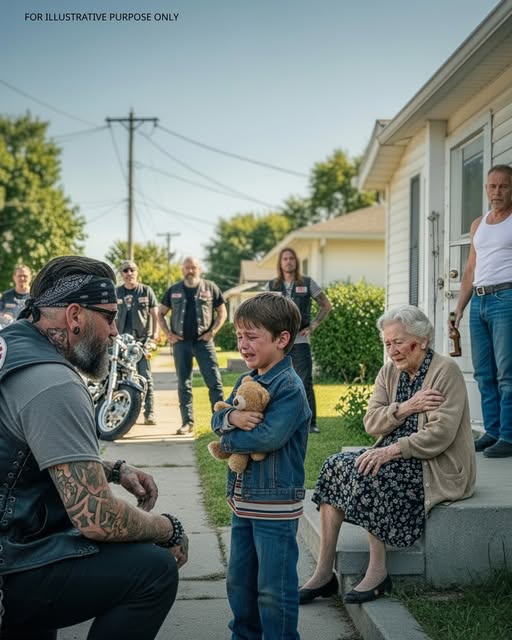
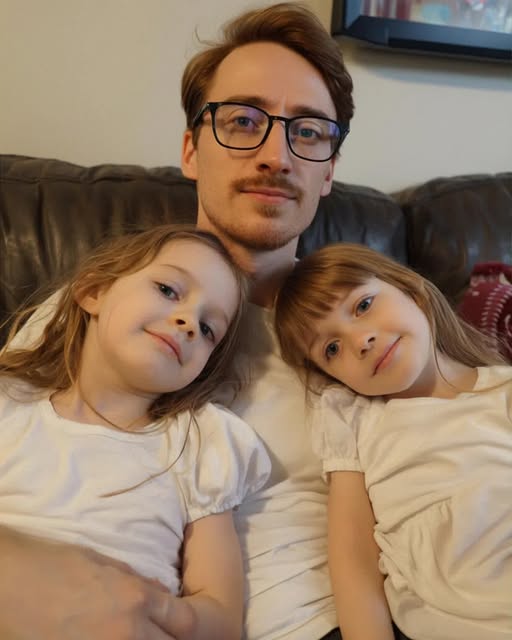

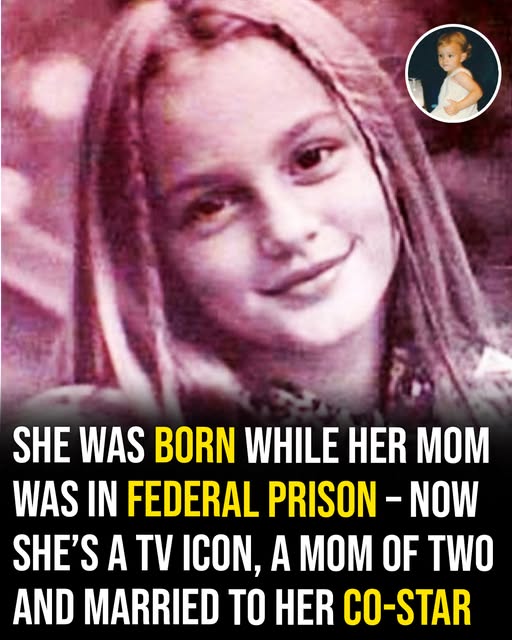




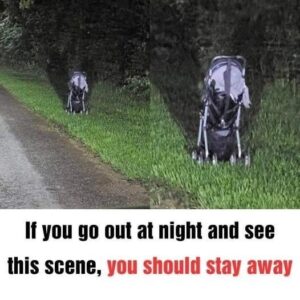


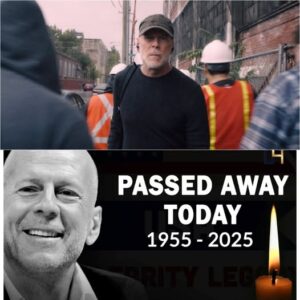
Post Comment